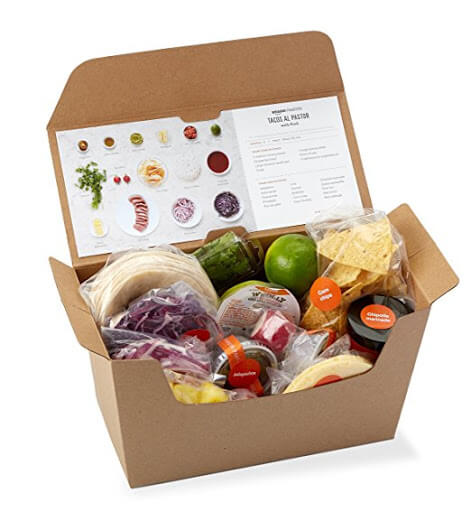How can food courier companies become more eco-friendly?
The journey that food undergoes before it reaches a store or restaurant is often much longer than you might think. Moreover, this journey can also have a far greater impact on the environment than you’d imagine.
It’s no secret that consumers are increasingly seeking out more sustainable shopping options (see our piece on consumer attitudes towards sustainability, and something that companies are responding in turn.
Food production is a topic of contention within the wider sustainability discussion, and talk about the impact of food miles on the environment is effecting the habits of consumers and retailers alike. In this article, we look at the impact of food miles on the environment, and how sustainable last mile delivery could reduce carbon emissions and help the food logistics journey to become more eco-friendly.

What are ‘food miles’?
Food miles, to put it simply, are the miles over which food travels between the producer and the consumer. The greater the distance food travels from producer to plate, the greater the carbon emissions released into the environment.
How do food miles impact the environment?
Food grown overseas and imported into the UK via airfreight, for example, will have far higher food mileage than food grown domestically or locally. However, the importation of food only makes up one part of its mileage. Once food reaches the UK, many more miles lie between arrival and the final destination.
DEFRA (the Department for Environmental, Food and Rural Affairs) estimates that the transport and distribution of food around the country accounts for roughly 25% of the miles travelled by heavy goods traffic in the UK, which equates to nearly 20 million tonnes of CO2 every year.
While the emissions from airfreight travel and heavy goods traffic contribute a large amount of carbon in the atmosphere, importing food from overseas isn’t always the worst option as far as environmental impact. Produce grown in heated greenhouses, for example, may often have higher carbon emissions than food imported from hot countries.
That said, reducing the emissions incurred by food miles and high emission transport methods is sure to have a positive impact on the carbon footprint of the food logistics journey.
How can we reduce food miles for business?
There are a number of ways in which businesses can reduce their food miles. Buying products with longer shelf lives in bulk reduces the number of deliveries that need to be made to your business, therefore reducing mileage. Although it should be said that this is a reversal of the previously prevalent ‘just-in-time’ approach to stocking and inventory. Shopping for produce when it’s in season locally, for example, reduces the distance that food needs to travel from producer to final destination.
However, the great British consumer has grown accustomed to fresh okra and strawberries out of season and relying more on shopping seasonally would lead to a significant reduction of choice. Produce grown locally in the UK isn’t particularly varied even at the best of times, let alone through the colder months of the year, which means that another solution must be found to avoid consumer choice being reduced too dramatically.
The question, then, is how can we practically help make the food courier delivery supply chain more environmentally friendly?
How can we make food courier delivery in London more eco-friendly?
One obvious way in which food distribution and transport emissions can be reduced is by changing delivery methods. Sustainability is becoming increasingly significant to businesses, with increasing consumer scrutiny on corporate ESG (Environmental, Social and Governance) action rather than words.
Electric vehicles are becoming more commonplace by the day, and have, in turn, become more and more prevalent in the logistics sector. For example, major brands such as Amazon, as part of their Climate Pledge, have invested in a large fleet of electric delivery vans.
Here at Absolutely Courier, we continue to invest in electric delivery vehicles in our pursuit to improve sustainability. Operating mainly across central London, our electric vans, motorbikes and cargo bikes are helping to distribute larger loads for longer distances across London’s ULEZ ZONE and beyond.
The delivery of food products presents its own special challenges. Fresh food needs to be maintained in good condition throughout its journey from production to outlet or the consumer. Nearly always it requires custom packaging, handling and often distribution in a temperature-controlled environment. So delivering over the final mile, in particular, requires the right mix of vehicles to ensure both emissions and carbon footprint remain as low as possible.
Absolutely – London’s Sustainable Final Mile Food Courier
Final mile delivery also referred to as last-mile delivery, is the last step of a product’s journey to its end destination. We understand that the effective use of local fulfilment centres and hubs in the last mile of the supply chain has the potential to greatly reduce carbon emissions.
In a recent report published by Accenture, it was found that the last-mile or final mile stage of the supply chain could lower carbon emissions by 17%-26% by 2025. Local fulfilment centres, closer to the customer offer a better opportunity to employ zero-emissions delivery options which typically have range limitations, such as cargo bike courier services. However, eliminating the traditional diesel van will have a huge impact on reducing emissions in city-centres or any dense urban areas.
Absolutely Courier, with its eco-hubs spread across London, has the ability to provide an eco-friendly and sustainable food courier service in central London. For final mile food distribution, our electric cargo bike courier services can be used in combination with our electric vans, to reduce previously high levels of carbon emissions and environmental pollution in London. Our cargo bikes can carry a maximum weight of up to 200kg, and are the perfect zero-emissions choice for food final mile courier deliveries to local stores or restaurants in Zones 1 and 2.
For larger food courier deliveries, our fleet of electric delivery vans is also available, ensuring that your food courier delivery service is quick and efficient, while also providing a ULEZ compliant, sustainable, and eco-friendly food courier service. Moreover, if your food delivery requires a temperature-controlled courier service, we operate a fleet of temperature-controlled, refrigerated vans, which can sustain a range of temperatures between +10 and -30 centigrade.
London food courier delivery – final thoughts
Food courier delivery and distribution has long been thought of as a large contributor of carbon emissions, but with developments in electric delivery vehicles and last-mile delivery, the tides are turning, and there are many food brands and distributors, and food courier companies starting to work together to become more eco-friendly.
The carbon emissions created through food courier delivery services can be reduced by using zero-emissions delivery vehicles as much as possible in the supply chain. Absolutely Courier has the zero-emissions delivery options to help your food business do its ‘bit’ for the environment.
Our food and drink courier services operate 24/7 across London, point-to-point or multi-drop. Our courier services can even extend to nationwide coverage if that’s what you require. Whatever you need, Absolutely Courier has the London food courier service to meet your needs.
Get in touch today to organise your eco-friendly food courier service.

